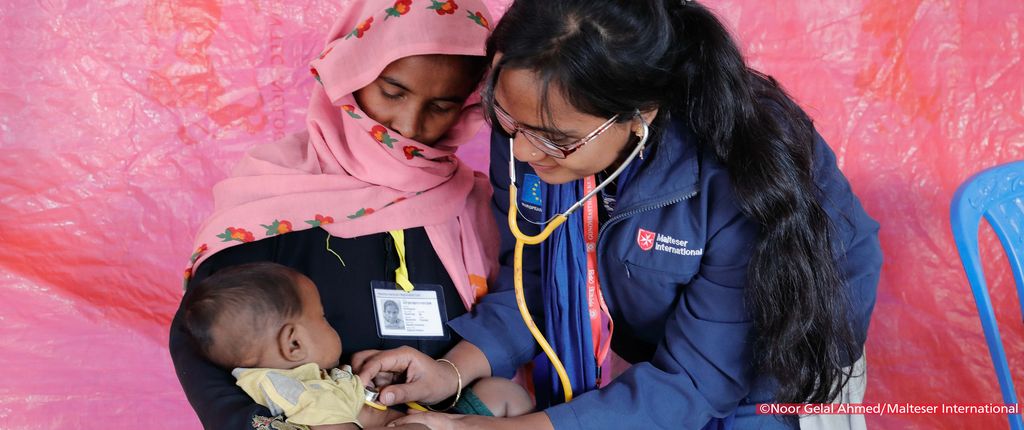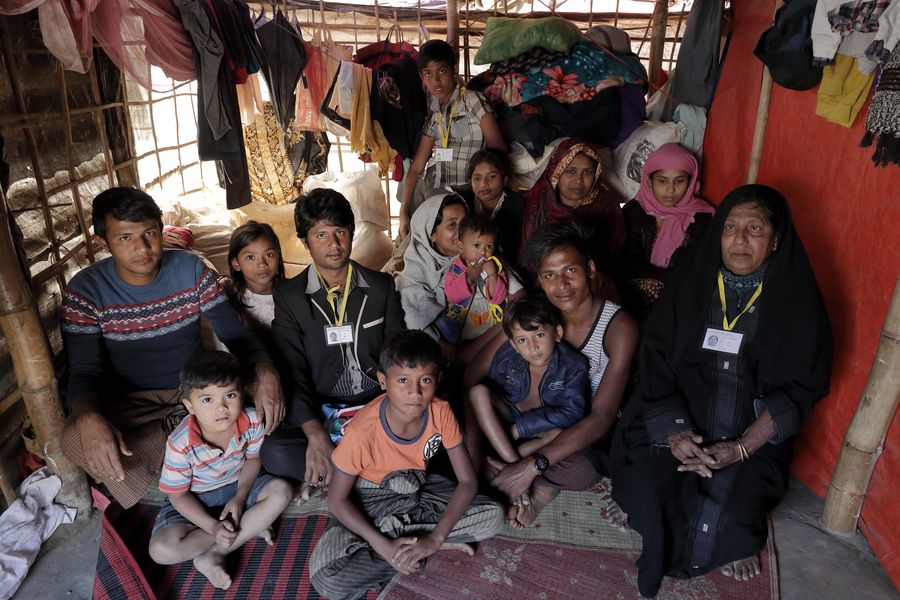
Who are the Rohingya?

The Rohingya are an ethnic group who mostly come from Myanmar’s Rakhine state. The vast majority are Muslim living in mainly Buddhist Myanmar, and bordering majority Muslim Bangladesh. Their religion and disputed claims over their origin have made them targets of discrimination, marginalization, and persecution by the government and military in Myanmar. Prior to the violence that began in August 2017, about one million Rohingya lived in Myanmar.
The history of the Rohingya is still controversial. While many historians claim the Rohingya have always lived in the area now known as Rakhine state, and converted to Islam as early as the 12th century, many others in Myanmar believe the ethnic minority are illegal Bengali immigrants. An argument that has been used to justify the discrimination towards the Rohingya.
The situation of the Rohingya in Myanmar
They have been described as the world’s most persecuted people. The discrimination they suffer come in different forms – the Rohingya have been refused recognition as citizens of Myanmar, effectively rendering them stateless. They are not allowed to vote, and are denied access to higher education. Furthermore, their rights to work, practice their religion, and travel freely, even inside the country, continue to be restricted. Their villages and neighborhoods are considered illegal structures by the government of Myanmar, prompting frequent crackdowns by the military. The Rohingya have also been subjected to arbitrary taxation and extortion as well as manipulation of statistics in relation to births and deaths.
Renewed conflict in 2017
The recent crisis began in August 2017 after a militant group - Arakan Rohingya Salvation Army - carried out attacks on police and military posts. In response, security forces launched a “clearance operation”. Entire villages have been plundered and burned to the ground, women have been raped, and thousands displaced and killed. The UN has accused the government of Myanmar of carrying out “ethnic cleansing” of the Rohingya. The conflict has prompted a refugee crisis of immense proportions. Hundreds of thousands have fled to neighboring Bangladesh since August 2017.
What does the future hold for the Rohingya?
Close to one million Rohngya are living in Bangladesh at the moment. As one of the poorest countries in Asia itself, Bangladesh is struggling to bear the burdens of accommodating such a large number of refugees, especially without help from the international community. There is an urgent need for assistance in the refugee camp, and this need is enormous: there are far too few sanitary facilities, there is poor access to food, basic necessities, and health services.
In January 2018, an agreement was reached between Myanmar and Bangladesh on the repatriation of the refugees. Among other things, the Rohingya demand compensation for ruined property, recognition as one of Myanmar’s ethnic groups, citizenship, and of course assurance of safety in their homes. However, there are no signs that Myanmar is willing to accept these demands in full. Most Rohingya are currently wary of returning to Myanmar. Developments in Myanmar at the beginning of 2021 also make a return a distant prospect. The future for them is still uncertain, but it is clear that their need for humanitarian assistance will continue in the months and years to come.








